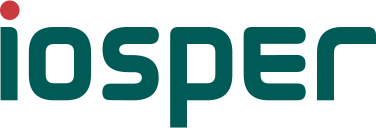
Data Science & Business Analytics
Live online classes
March 2026
60 Credits
- No son necesarios conocimientos previos
- We prepare you for certification
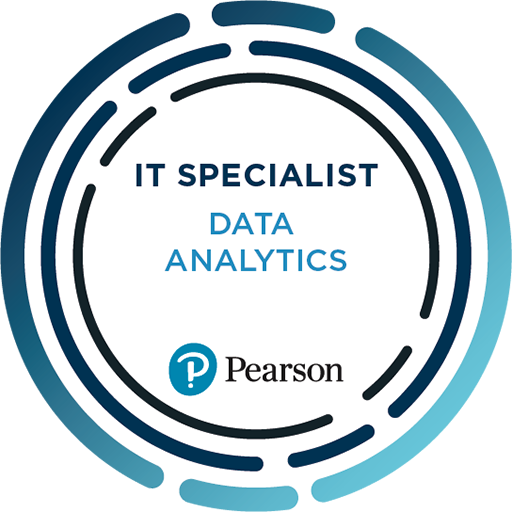

Official degree in Panama, Colombia, and Ecuador by the Metropolitan University of Education, Science and Technology (UMECIT)
Prework
Presentation of the curriculum, work tools, and how the programme and group operate.
Free access to complementary training:
- Generative AI Course: Prompt Engineering and Productivity
- Introductory programming course: Python
¿Por qué estudiar Maestría Oficial en Data Science & Business Analytics?
Specialize from scratch in data science and become an expert: non-tech skills, code, data science, AI, and machine learning. Upskill progressively through an innovative program and benefit from our online and collaborative learning methodology.

Entry requirements
All applicants must present the following documentation, scanned from the original and sent to the promoter to be hosted on the respective platform:
- Bachelor's degree or equivalent degree credits or grades.
- For foreign qualifications, the above documents must be certified by apostille from the Ministry of Foreign Affairs of the respective country.
- In the event that the country in question does not have a consulate, you must carry out the procedure with the corresponding official authorities.
- Identity document (passport in the case of foreigners residing in Panama).
- A current passport-sized photo
- Complete the admission form in electronic format with the promoter.
Nota: Los estudiantes matriculados en modalidad virtual cuya nacionalidad sea diferente a la panameña, deben presentar una copia de su documento de identidad personal del país de origen. En caso de ser estudiante extranjero estos documentos deben ser aportados con sello de apostilla o legalización por vía diplomática y su traducción en idioma castellano.
Requirements for attending the course
Students’ entitlement to remain at the University will depend on their motivation, ability, and vision to obtain their chosen degree.
Given the profile of the university's ‘CYBERHUMANIST’ educational model, students must:
- Study both as a team and individually.
- Develop research skills based on learning through discovery.
- Take an in-depth interest in the knowledge related to your discipline.
- Respect and comply with the regulations established by the statutes that regulate relations between the University and students.
- Follow attendance requirements and attend at least 80% of the meetings in the partial on- campus format.
- For virtual format studies, attendance is regulated through constant interaction in all the activities planned on the platform, including synchronous and asynchronous meetings, as well as the development of the student's independent work.
- Any prolonged absence must be duly justified.
- All students in specialization programs must have basic IT knowledge.
Índice: Mantener un índice mínimo acumulativo de 2 en una escala de 1 a 3.
Nota: Aprobar cada asignatura con una nota mínima de 81 en una escala de 1 a 100 lo cual equivale al literal B.
Graduation Requirements
To obtain the qualification of Specialist, the following are required:
- Contents: Maintain a minimum academic cumulative score of 2 on a scale on a scale of 1 to 3.
- Hold a qualification for a second language recognized by UNESCO, in accordance with internal regulations.
- Take and pass all subjects on the curriculum with a minimum grade of 81 points, equivalent to a B.
- Complete an 80-hour internship and present a final report with a case study. This must be aligned with the last subject of the specialization: Investigation I: Planning, Monitoring and Evaluation of Projects.
- To have no outstanding debt, loans or work with the institution (financial, academic and library).
To obtain the Master’s qualification, the following are required:
- Maintain a minimum academic cumulative score of 2 on a scale on a scale of 1 to 3.
- Second language recognized by UNESCO
- Take and pass all subjects on the curriculum with a minimum grade of 81 points, equivalent to a B.
- Hold a qualification for a second language recognized by UNESCO, in accordance with internal regulations.
- Final work (Degree)
To obtain the Master’s qualification, the following are required:
To have no outstanding debt, loans or work with the institution (financial, academic and library).
Final work (Degree)
Prepare, defend and pass the degree work.
Align Action Research: Carry out the degree work
Take and pass all the academic content of the enrolled program.
Graduate Profile
Knowledge
- Understand data, its importance, its use, its interpretation and how to extract value from it.
- Discover the main tools in data science that allow a company or institution to benefit from the data it collects.
- Learn how packages or libraries are used to extend the functionalities of a programming language.
- Understand what big data is, the causes that have led to the emergence of big data technologies and learn about the evolution of big data in its historical context.
- Understands the concept of data science, its relationship with other disciplines, its methodology and practical applications.
- Master data processing techniques and understand their relevance, both in improving the quality of data and in increasing its usefulness for models, algorithms, consolidations, visualizations and other elements.
- Understand the principles and benefits of business intelligence.
- Identify a complete big data solution in a Hadoop ecosystem and put it into practice on a virtual machine.
- Understand that the techniques that allow to extract knowledge of the population from the sample are the most evident for the approximation to the reality of the population the more representative the sample is of the population.
- Understand machine learning and how it can help businesses; as well as understanding the main types of machine learning algorithms and when each type should be applied.
- Know and understand artificial intelligence, its implications and the type of problems it can resolve; decision-making techniques (expert systems and supervised learning), as well as their applications.
Do
- Interpreting the information extracted from data and knowing what questions can be answered by the data, means really understanding what the data represents.
- Use the main data science tools to be able to present data with accuracy and value.
- Install and use packages or libraries to extend the functionalities of a programming language.
- Apply the fundamental elements of programming, both for Python and R.
- Develop the model of a data-driven company and how this is constructed through the leverage of its data platform; characterizing new profiles in the company that emerge as a consequence of the adoption of a strategy based on data exploitation.
- Carry out a data science project based on a problem to be solved, including the different stages, the type of tools to use, the professional profiles involved, the type of obstacles that could arise and the ways to overcome them.
- Make effective visualizations of information and convey the appropriate message.
- Solve a data processing solution with Spark in an environment with notebooks.
- Analyze and interpret data in order to promote value and applied innovation across various industries.
- Use other tools and services of companies that are ready to support your own projects.
- Process natural language, what types of problems it solves and its applications.
Be
- Analyze situations critically and propose viable solutions with objectivity and realism.
- Develop a global and complete vision of the complex socio-labor relations that arise in the various historical and current methods of production.
- Perfect the theoretical bases of the specialization and focus it in the best possible direction.
Live
- Feel the dynamics of data management and turn it into information, with support from a specialist workforce.
- Understand the importance of human resources within the development of a company.
- Contribute to the construction of the social fabric by managing the human talent of the company
Start
Have the ability to generate new companies through feasibility assessment based on data and how to create value from them.
Present proposals for the optimization of IT resources.
Generate data analysis and optimization models in a company.
Program aims
- Programming languages: Python and SQL.
- Extract, process and analyze data for decision making using the latest techniques and tools.
- Learn to manage projects based on data science and big data. Promote advanced data analytics initiatives across different areas of the business.
- Get a comprehensive and transversal vision of big data and cloud solutions.
- Generate reports, dashboards and visualizations of data.
- Anticipate and detect patterns, trends and causes using predictive analytics and machine learning.
- Master the strategic application of data science in areas such as marketing, CRM, banking and finance, operations, HR, and the IoT among others.
Career opportunities
- Data Scientist.
- Data Analyst.
- Data Engineer.
- Experto en visualización de datos.
- Experto en arquitecturas de almacenamiento y procesamiento de datos.
- Experto en machine learning.
- Experto en inteligencia de negocio.
- Chief Data Officer (CDO).
- Business Analytics.
- Business Intelligence.
Career Readiness
The comprehensive training we deliver to our students thoroughly prepares them for the employment market. Through a personalized syllabus, we help them develop professional skills, establish relationships with companies and sail through recruitment processes.
An alternative training
In all our content, we include a percentage of Human Sciences to connect technology with soft skills.
Learning By Doing Methodology
It focuses on the practical application of knowledge and skills to foster meaningful and lasting learning.
Certification training
Con este programa adquirirás las competencias necesarias para trabajar en un entorno profesional. Para que puedas demostrarlo, IMMUNE te prepara para certificarte en IT Specialist y Microsoft.
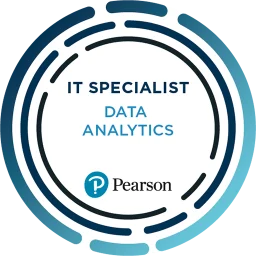

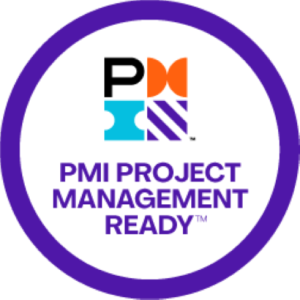
Study plan
Data Scientists’ Tools
Revisión de los conceptos claves de programación necesarios para abordar el tratamiento y aprovechamiento de los datos mediante código. Presentación de las capacidades que ofrece Python.
- Fundamental concepts of Python and libraries for data science: Numpy, Pandas.
- Python intermediate and advanced.
- Data processing and visualization with Python.
Base de datos
This module examines what databases are and discusses the main types. Students explore the world of relational database modeling and learn to program in SQL. In addition, the module looks at ETL processes and how they are designed and implemented.
- Database design
- SQL Standard I
- SQL Standard II
- El almacén de datos / Datawarehouse y Herramientas y procesos de extracción, transformación y carga ETL»
Data science. Analysis, mining and visualisation techniques
Review of the life cycle of data and how it affects the data analysis process. Students also explore the world of data visualization and learn to design dashboards in PowerBI.
- Data quality and life cycle
- Data preparation and pre-processing
- Visualization tools and techniques I
- Visualization tools and techniques II
Impact and Value of Big Data
This module examines big data analysis as a tool to address key research questions and issues. Students will understand what is meant by big data, how it has developed over time, the causes that have led to the emergence of big data technologies and how it compares with traditional business intelligence.
- Introduction to the world of big data
- Business intelligence vs big data
- Big data technologies
- The value of data and applications across sectors
Big Data Tools and Technology
Discover and use the tools that comprise the ecosystem in order to process vast quantities of data. These include Spark, Hadoop, and NoSQL databases.
- HADOOP and its ecosystem
- SPARK
- NoSQL databases
- Cloud platforms
Statistics for the Data Scientist
In this module students learn the fundamental concepts of programming in R, a programming language for statistical computing. The main statistical concepts essential for data analysis are also introduced here.
- Introduction to statistics
- Probability and sampling
- Inference and lineal regression
- Experiment design
Machine Learning
Students learn the fundamental concepts and algorithms of machine learning, one of the cornerstones of data science and artificial intelligence.
- Machine learning tools and the techniques and applications of supervised learning
- Techniques and applications of unsupervised learning
- Deep learning models and techniques
- Cloud solutions for machine learning
Directed Research I
The purpose of the Directed Research I module is to enable students to see that research is a systematic and ordered process aimed at managing knowledge. Consequently, during every academic training process, it is essential to carry out research work that is geared towards the needs of a given context and that demonstrates the student's research capabilities.
- The research question.
- The rationale for the research.
- Establishing research objectives.
- The contextual and temporal scope of the research.
Artificial Intelligence for Business
Comprender el concepto de inteligencia artificial, su significado y el tipo de problemas que puede resolver. Identificar las técnicas para la toma de decisiones (sistemas expertos y aprendizaje supervisado), así como sus aplicaciones. Analizar el aprendizaje por refuerzo, su ciclo de vida, sus componentes más importantes y el tipo de problemas que resuelve…
Artificial intelligence and applications in decision making. Reinforcement learning and its applications. Techniques and applications of natural language processing (NLP). Recommendation systems and applications.
Big Data in the company
Analysis of the concept of the digital transformation from the point of view of the technologies that drive it, with a special focus on the following trends: Big Data, Artificial Intelligence, Blockchain, Internet of Things, Industry 4.0 and Smart Cities.
The Digital Transformation. Blockchain. Internet of Things. Industry 4.0 and Smart Cities
Applications by sectors. Masterclass, case study, and practical workshops
How analytics can be applied to specific scenarios. Discovering how specialized analytical methods can be applied to different types of data.
Scalable analytics. Analysis of social networks and the Internet of Things. Analysis of the financial area and customer service. Analysis of information retrieval techniques.
Directed Research II
- Recognizing types of research in line with the knowledge generated.
- Study of research designs.
- Study of the techniques and instruments of data collection during the research process.
- Study of the criteria that characterize the study units and study population.
- Building data collection instruments.
- Applying reliability and validity tests to the data collection instrument(s).
- Collecting data according to the criteria defined in the study.
- Understanding the data analysis process and its stages.
- Identificar las técnicas de análisis a utilizar según los códigos de los datos (códigos verbales o numéricos)»
Data collection techniques. Data collection instruments. Research study units and study population. Instrument validity and reliability procedure. Data analysis techniques.
Final project
At Master's level, the written work must be presented and students must generate scientific products from their research experience. Students are responsible for organizing the presentation of the written work.
Introduction Formal issues relating to the presentation of the work. Institutional procedures. Viva voce. Publication.
* El programa académico puede estar sujeto a cambios en función de la diferente variedad en la demanda de skills dominantes del mercado.
Tools
Learn how to use industry-leading tools

Professionals
What people say about us
Financing
Full payment
If you pay in one instalment you will receive a 15% discount.
18 cuotas sin intereses
Sequra
Pay in installments, even if you are unemployed and cannot guarantee the loan.
Quotanda
Pay in installments, even if you are unemployed and cannot guarantee the loan.
Fundae
Pay for your training through the Spanish Employment Training Foundation. Aimed at active workers who wish to finance their program through the subsidized training program.
FAQs
What certification or qualification will I receive on completion of the course?
Once you complete and pass the programme you will receive a diploma issued by IMMUNE Technology Institute in a digital format verifiable through blockchain technology.
Can the course be delivered online?
Yes, the program is delivered online with live classes. As such, you will be in direct contact and under the supervision of the teachers, which will enable you to follow the classes and interact in a flexible and natural way.
Is this programme for me?
Do you want to level up?
Do you want to stay in your field or sector, but you want to continue learning and explore new challenges? It's time to give your professional profile a boost and align it with the latest trends in technology.
Are you finishing your degree, and you want an upgrade in technology?
We love your profile, because you dare to dream. And in the professional world, fortune favors the bold. If you are an entrepreneur or freelancer, this program will help take your professional projects to the next level.
Want to change your professional career?
If you want your career to take a new direction and enter the world of tech with a bang, the program will help you specialize and shape your professional profile.
Are you an entrepreneur or freelancer?
This program will put you in the spotlight, as technology is the engine of innovation and the key to staying competitive in a constantly evolving market.
Will the tools I need be included in the price of the program?
The tools used throughout the program are licensed for free use, in some cases because we use educational licenses and in others because it is free software.
Is there a careers and employment guidance service?
We have an employability area which, through our Talent Hub program, is responsible for supporting the efforts of our students to enter the employment market. The services we offer include resources to help you search for and prepare for interviews, English tests, resume and/or Linkedin profile guidance, interview and elevator pitch training, and access to our exclusive internship and employment pool.
What are the requirements for my computer?
You will need to have access to a laptop with a camera, microphone and minimum requirements of 8 GB of RAM and an i5 processor.
What is the Capstone Project?
The final project is where everything you have learned throughout the program is applied and consolidated. You will present the project to a panel of professionals from companies in the sector, which represents a unique opportunity for students to demonstrate their knowledge to potential employers and also to network.
Are there grants or scholarships available?
Yes, there are scholarships or study grants as well as financing options depending on students’ circumstances. Check out our scholarship and financing options.
Book my personalised academic and professional consultation
Mary García

Rafael Torralva

Sabrina Stenta

Admission test
This questionnaire will allow us to gain an in-depth understanding of your profile, ensuring that the programme aligns perfectly with your current knowledge and expectations, and guaranteeing that you get the most out of your time with us.
Why should you take the test?
- To assess your prior knowledge.
- To ensure that this course is the right fit for you.
- To offer you a personalized and unique learning experience.
How does it work?
The test is completely online, requires no prior preparation, and will take no more than 25 minutes.
Admissions Process
Our students are characterized by their passion for technology. Our admissions process focuses on who you are, how you think, what you have accomplished, and then sharing your goals.
Our aim is to get to know you better, see what makes you unique and ensure that the IMMUNE educational model adapts to your profile.
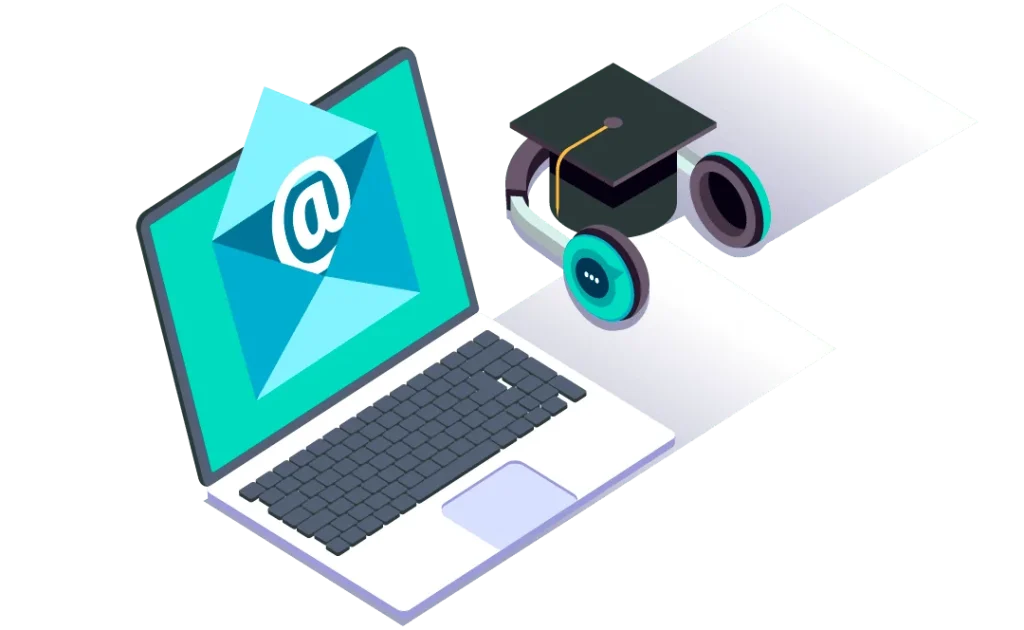


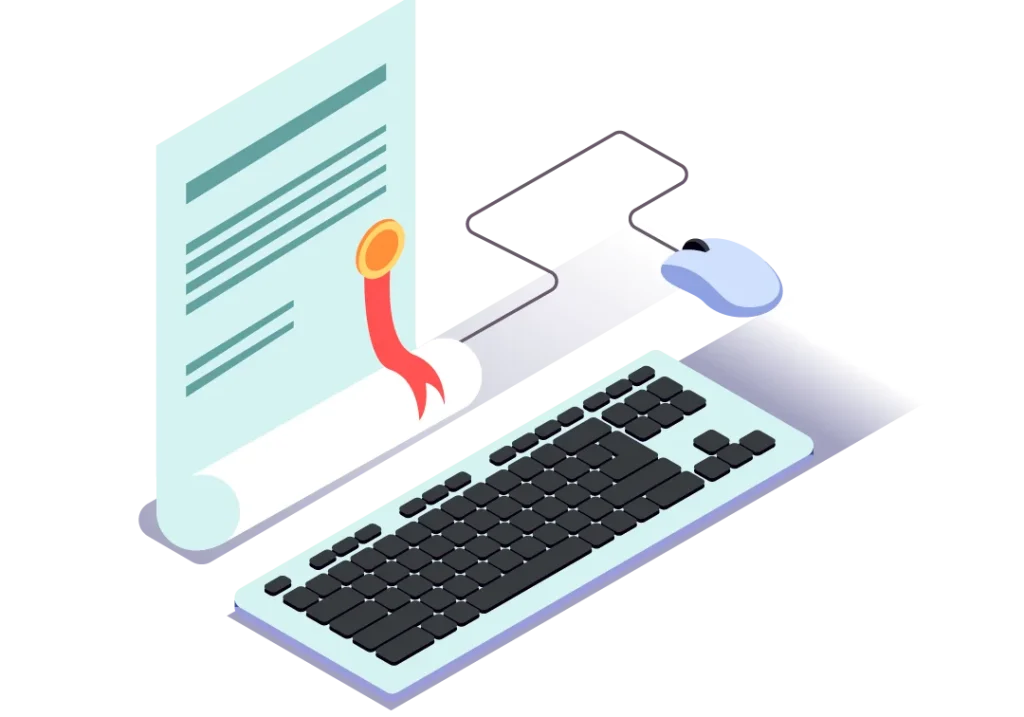
Visit our Campus in Madrid and discover everything about our programmes
- Personalised guidance Monday to Friday.
- Intake now open for March, September and October.
Designed to replicate an ecosystem of start-ups and tech companies, we’ve created a slice of Silicon Valley in the heart of Madrid.

